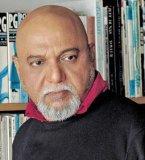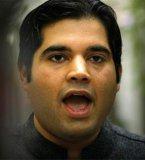Archives
Silly Point Sibal
The moment Sibal sparked off the row to impose gag orders on the social networking sites, search engines and other select websites like Google and Facebook he was sounding like a typical Congress zealot, someone narrow minded and more concerned about the image of the Prime Minister and Sonia Gandhi. He even chose to be less pragmatic on whether he can really implement what he is trying to preach.
One is raising the issue of ‘feasibility’ more than anything else with a clear conviction that any exercise to impose restrictions on an open media like websites only amounts to making one a laughing stock. After blatant failure to slap any such gag orders from the US and China, the last thing Sibal could have done to bring disrepute to Indian democracy.
Countries like the US and China had tried these but failed. “To have a human inspection of what goes on the internet every second will require more than the population of the country,” said Atul Chitnis, a Bangalore based technologist and an avid tweeter.
![]() There is another lighter matter but possibly with serious implications. Many individuals this writer spoke to confirmed that they came to know about so called questionable sites and Facebook contacts like ‘We-hate-Sonia Gandhi’ only after Sibal tried to play the cyber-moral police.
There is another lighter matter but possibly with serious implications. Many individuals this writer spoke to confirmed that they came to know about so called questionable sites and Facebook contacts like ‘We-hate-Sonia Gandhi’ only after Sibal tried to play the cyber-moral police.
“I urge you to write KAPIL SIBAL IS AN IDIOT as your Facebook status message, use the hashtag #IdiotKapilSibal on Twitter,” ran a campaign shortly after Sibal made his intentions known.
Next comes the vital issue of democracy that India cherishes and whether such a gag order will demonstrate the government’s hidden autocratic intensions, something the ruling Congress party is infamous for.
Predictably, the nation got angry and the government was ridiculed. Is Kapil Sibal being deported to China? ran a message in one such sites.
 “Kapil Sibal is making the same mistake Siddhartha Shankar Ray did to provoke the Emergency. Another Mrs. G paid the price for it.” “Kapil Sibal is making the same mistake Siddhartha Shankar Ray did to provoke the Emergency. Another Mrs. G paid the price for it.”Journalist and former Shiv Sena MP, Pritish Nandy |
“The world’s largest democracy is sounding ominously like the world’s largest autocracy,” remarked actor Kabir Bedi in Twitter. The BJP MP Varun Gandhi decried any effort to “gag” Internet.
“Internet’s the only truly democratic medium free of vested interests, media owners & paid-off journos. Can see why Kapil Sibal wants to gag it,” he wrote. Journalist and former Shiv Sena MP, Pritish Nandy was cryptic, “Kapil Sibal is making the same mistake Siddhartha Shankar Ray did to provoke the Emergency. Another Mrs. G paid the price for it.”
The Line of Defence:
| Tool of hatred: Spreading hatred or a group’s mission has become far easier with the web. There is an estimated 35-45 per cent increase in the number of sites that foment hatred and violence globally. Take for instance, ‘I hate Pakistan’. Those who deal with cyber-terror links in the intelligence agencies say blog posts, networking sites and mobile phone messages often signal fresh terror strikes or alert the insurgent groups both in Jammu and Kashmir and in North East India. The anti-talks faction of ULFA headed by Paresh Baruah is said to be getting more cyber friendly than the earlier avatar of united ULFA. Russians are running many pro-communist blogs while Chinese have their sites like anti-cnn.com justifying ban of western products.
|
Probably, he forgets that this was the same excuse taken by Indira Gandhi to slap emergency and her son Rajiv Gandhi to try the Defamation Bill when the Bofors issue came out to haunt the Congress party. “We will not allow this kind of material. It is certain,” he told reporters in the capital.
Sibal had actually built up the government’s stance and his argument that the networking sites including Google and Facebook did not respond adequately to the formal request from the Telecom ministry first sent to them on September 5th, 2011.
He said that when the offensive content was shown to them, the representatives of these companies agreed that they were disparaging but they did not take any action. Note the timing, September 5th, 2011. It was only about a week since August 28th when Anna Hazare had withdrawn his fast at Ram Lilla ground. There’s little to dispute that the unprecedented sea of humanity that swelled in support of Anna and brought the highly arrogant government to its knees was motivated largely by networking sites Facebook, Twitter and others, besides of course the conventional print and electronic media.
Sibal has been partly honest when he says that the government was upset particularly with the images and other messages involving Dr. Manmohan Singh and Sonia Gandhi.
 “Internet’s the only truly democratic medium free of vested interests, media owners & paid-off journos. Can see why Kapil Sibal wants to gag it.” “Internet’s the only truly democratic medium free of vested interests, media owners & paid-off journos. Can see why Kapil Sibal wants to gag it.”BJP MP Varun Gandhi |
During Anna’s fast and arrest fiasco in August 2011 billed as the Indian Spring Revolution, a few ominous messages spread like wildfire. One of them spoke about alleged financial defalcation of a close kin of Sonia Gandhi run by popular video site ‘youtube’ and whose link probably had the maximum hits on Facebook. Even those who preferred to stay aloof from politics were then convinced that all was not clean at the higher echelons of the Indian political class.
The government - remote controlled by the first family of Indian politics - could not take all that lying down. Sibal had to come out in defense of the political and social interests of those who matter. He was particularly referring to some images spotted on September 5th, 2011 that were against one particular religion. “I believe that no reasonable person aware of sensibilities of communities in this country would wish to see this content in the public domain,” he said.
| Narendra Modi: Turning Web into an advantage Narendra Modi’s love for the razor-sharp new technology, the IT and web technologies is famous. Gujarat watchers say that Modi understands pretty well that internet mediated communications/newsletters/ video footage can have transformative impact on people’s mind as more and more people are slowly getting affected by this technology. He already has hundreds of followers on his twitter account. Over the years since the 2002 carnage, whether one likes it or not, the internet has dramatically influenced Modi’s friends and foes alike. To those who view things with jaundiced eyes of a Hindu chauvinism, his twitter messages etc tell them how Hindus have been endangered. |
In fact, his ministry tried some formula too. “We prepared a draft framework for disablement of information. We discussed with representatives of Microsoft, Facebook, Google, and orally they agreed to many of them,” he informed media persons.
The ministry then had summoned the representatives from these companies on November 29th to meet Sibal, but on December 5th they said they can not do anything.
The websites took their oft-repeated line that they are applying the community standards of the United States. “This is a matter of great concern to us. We have to protect the sensibilities and cultural ethos,” said Sibal.
He was talking like a dictator from the Arab world. Almost shedding the secular democrat mask of a Congressman, many thought, he almost sounded like a RSS pracharak.
The Congress only wanted to test the waters. No senior politician really commented seriously on Sibal.
An avid Tweeter himself, Congress MP from Kerala Shashi Tharoor, former MoS External Affairs, tried to defend Sibal. He said that while he is against political censorship, there were some issues of concern like “communally inflammatory” material which ought to be checked.
Curiously, the same Sibal and Tharoor had remained silent when some sites showed controversial maps of China with ‘annexed’ parts of India.
In the ultimate, Sibal’s initiatives had fallen. Google has reacted rather angrily announcing that it will not delete any material. The internet search giant said that while they respected the law of the land they will not remove any content just because it is controversial.
“And even where content is legal but breaks or violates our own terms and conditions we take that down too, once we have been notified about it,” a Google spokesperson said.
Sibal’s initiatives have now turned into a case of a pricked balloon especially after the move fetched the Dr. Manmohan Singh’s regime some mild criticism from Hillary Clinton and also the United Nations.
Looking for cover virtually, as they say within days, Sibal is now singing a different tune. On December 15th, exactly 10 days after his first failed move, Sibal chaired a meeting of ‘Citizen Engagement and use of Social Media’. In the deliberations attended by representatives from major internet companies Google, Facebook and Twitter besides others, he was in a surrender and reconciliatory mood seeking the “support” from these companies to promote the government’s e-governance initiatives. This is what is called the return of a prodigal errant son (read Telecom Minister)!
In the ultimate, what needs to be stressed on is that surfing freely is part of today’s life. The principle theme guiding it is the freedom of expression – take it or leave it. Internet zealots would swear that sites have brought people closer: it’s a university for those who want to learn. The good old saying that the best gift for a child is to provide it with the ‘roots of responsibility’ and ‘wings of independence’ aptly applies to the internet and these social networking sites.
Swati Deb

